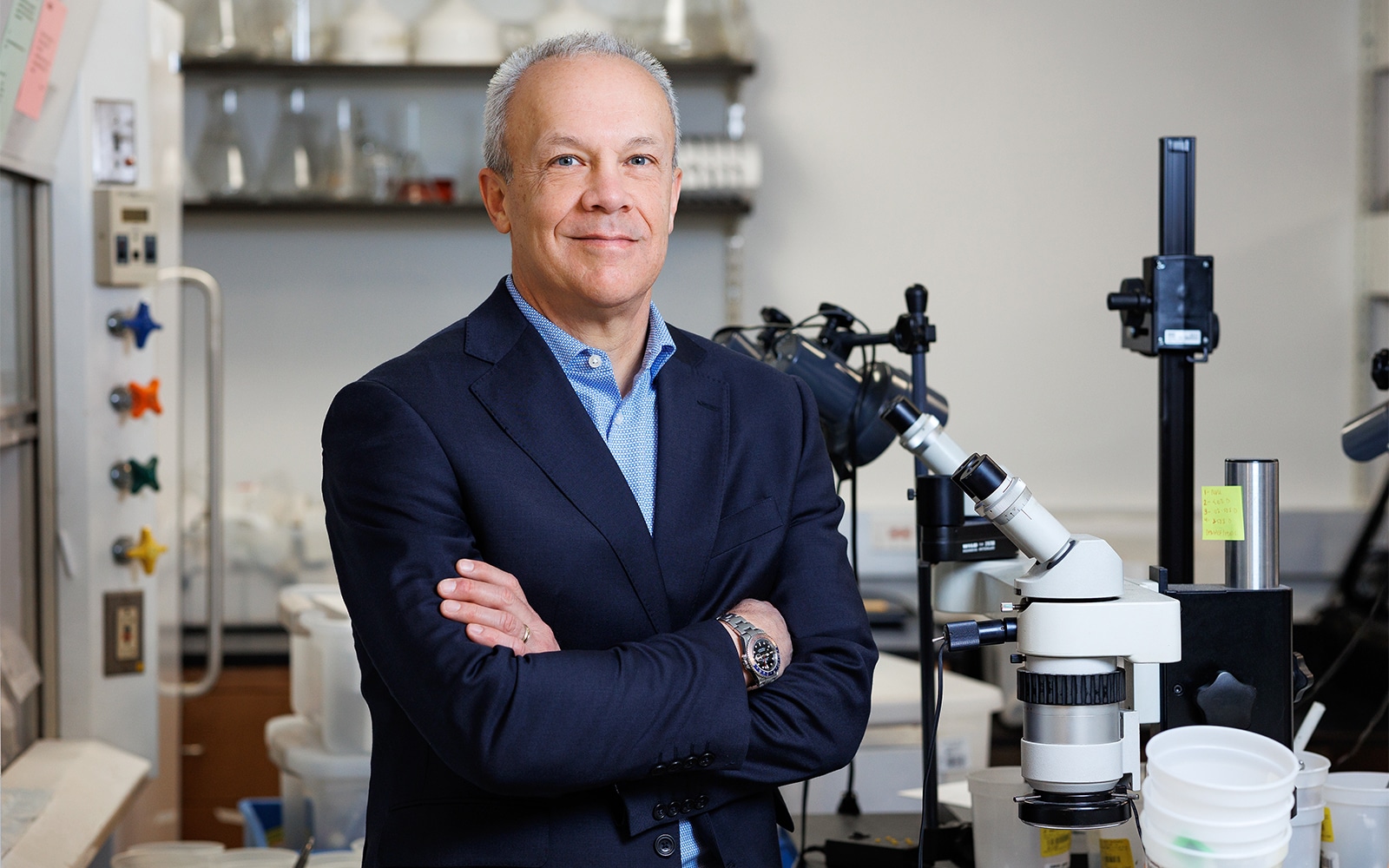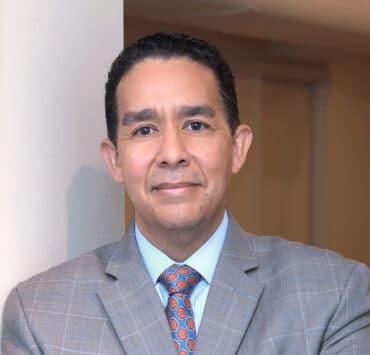Doug Leach appreciates Hospital for Special Surgery‘s (HSS) long history of innovation that has earned it a reputation as the national leader in musculoskeletal health. In the 1970s, its clinical practice and research led to development of the Insall-Burstein Knee Replacement design, which has served as the undisputed standard for knee implant designs ever since.
In 2016, HSS established the Innovation Institute to bring new inventions to the world via commercialization. Today, HSS and the Innovation Institute are collaborating with companies, health systems, and others to bring those new inventions and methodologies to patients around the world.
As vice president of device innovation at HSS, Doug Leach works alongside surgeons, clinicians, and other staff to identify, document, and develop the new ideas they uncover as they work.
“People who work here often innovate as part of their process of delivering the best-quality care in the world,” he says. “And my job is to assess their ideas, and then bring the full resources of this incredible organization behind them to bring the right partners and support on board to drive value for the inventors, the patients, and the organization as a whole.”
Leach has considerable resources to draw upon. HSS was founded in 1863 and has grown to become a nationally ranked hospital with the lowest orthopedics complication and readmission rates in the United States. In addition to its flagship location in New York City, HSS operates facilities in other New York counties and in three other states. It is affiliated with Weill Cornell Medical College and has a research center with twenty laboratories and three hundred staff members.
“HSS is an innovation generator,
and the Innovation Institute helps bring new ideas to life.”
Doug Leach
Additionally, the HSS Education Institute provides training in nearly 150 countries. The Hospital for Special Surgery has held the top spot on U.S. News & World Report’s annual list of Best Hospitals for Orthopedics since 2010, and it has received the Magnet Recognition for Excellence in Nursing Service from the American Nurses Credentialing Center five times in a row.
Leach came to HSS in 2017, just as the organization was building momentum with a new strategic approach to developing intellectual property through a formal institute.
“The HSS Innovation Institute was the right move at the right time, because we needed a mechanism to better capture the inventions that had historically either been overlooked or leaked onto the marketplace with little or no recognition to HSS,” he explains. “HSS is an innovation generator, and the Innovation Institute helps bring new ideas to life.”
Strategic partnerships drive these innovations forward. In 2016, HSS entered into a master development agreement with LimaCorporate, an Italian orthopedic implant manufacturer that is considered a 3D printing pioneer, to develop a unique elbow prosthesis. As the relationship grew, HSS and Lima established the first-ever, complex, orthopedic implant 3D printing facility on a hospital campus: the ProMade Point of Care Center for Complex Orthopedic Solutions in New York.
The partnership allows HSS and outside surgeons to use the services of this new facility to design and print custom, patient-specific implants and instrumentation. “The partnership was a perfect fit because it combines Lima’s 3D printing expertise with HSS’s knowledge of complex joint replacements to strengthen Lima’s ProMade product portfolio and reduce wait times for the patients who need these sorts of devices,” Leach explains.
“The model has always been to engage with the surgeon, but the missing element is adding in input from the key people who surround the surgeon on a daily basis, and I can connect all of those pieces here.”
Doug Leach
Leach brings many years of experience in the industry to the role. He graduated from Virginia Tech with a degree in biomedical engineering and helped design early knee replacement systems as a project engineer at Stryker Osteonics.
He then spent more than twenty-five years at Stryker in a variety of roles related to its joint replacement business, including expatriate assignments in Ireland and Switzerland. After managing Stryker’s $1.4 billion knee business line, he moved to OrthoSensor Inc. to assist in the creation of orthopedics devices powered by electronics and software platforms.
Leach leverages this background at HSS and says being embedded at a care provider allows him to reach a new level of results. “The orthopedic industry’s innovation model has always been to engage with the surgeon to develop new products,” he says. “This has worked very well over time, but a significant element that you’re missing is input from the key people and functions who surround and support the surgeon on a daily basis. I can connect all of those pieces here.”
Leach solicits input from physician assistants, nurses, administrators, researchers, communications professionals, and others to build out a new idea or invention.
These endeavors are having an impact.
Since opening its doors, the Innovation Institute has generated dozens of patents, worked with companies to launch numerous new orthopedic products into the market, and generated millions in royalties and equity for the HSS enterprise. Despite the success, Leach isn’t content to rest—he’s focused on what new advancements can come from data, artificial intelligence, machine learning, sensors, and other emerging technologies.
And Doug Leach is betting that, by engaging with the entire HSS caregiving and innovation community, HSS is in a great position moving forward to set a whole new standard in musculoskeletal care.
Leason Ellis’ intellectual property practice area focus—patent, copyright, trademark, and litigation—is rooted in a profound dedication to the law, a keen appreciation for inventiveness, creativity, and branding, and a powerful commitment to using IP to help our clients flourish.
Visit www.leasonellis.com to learn more.



